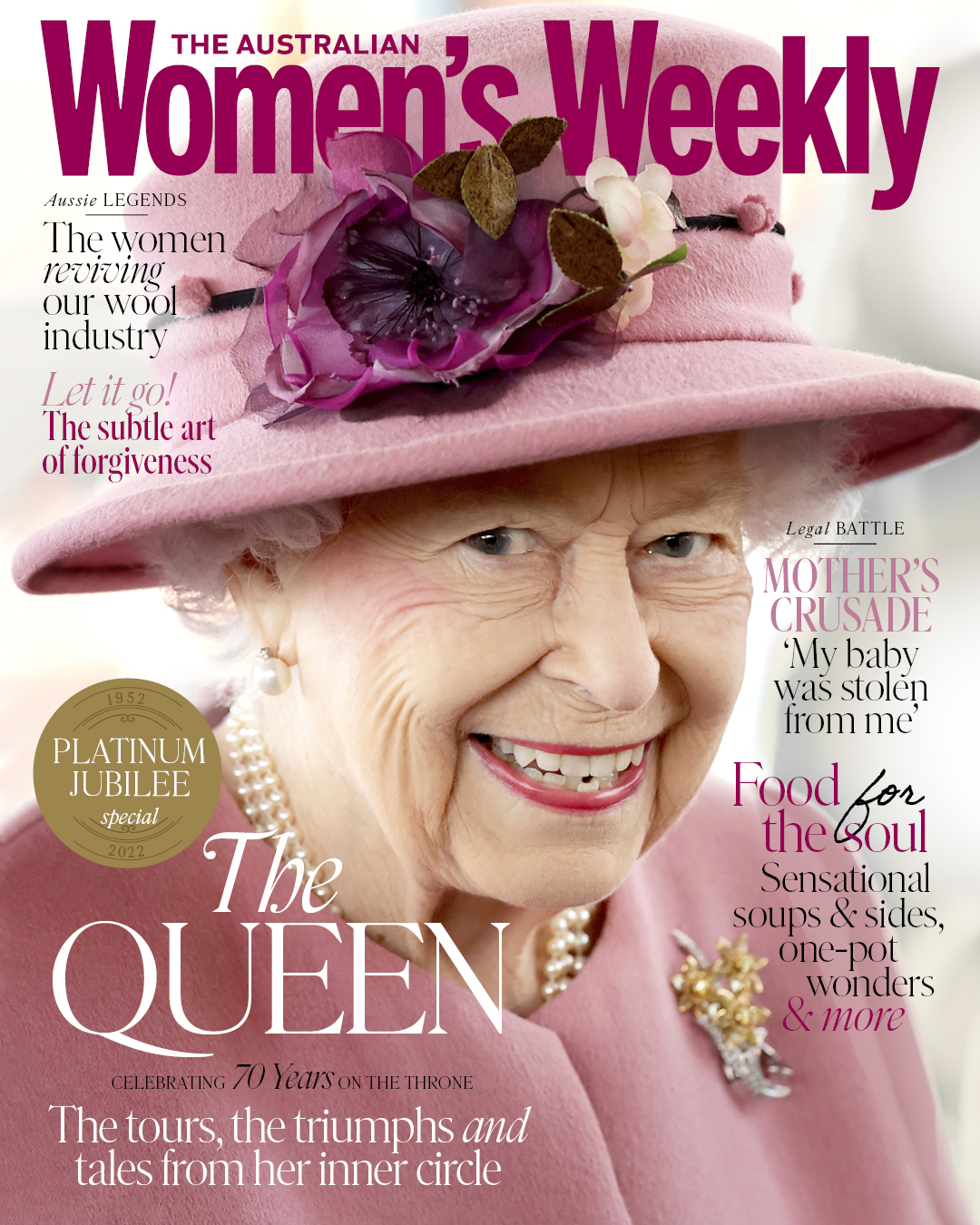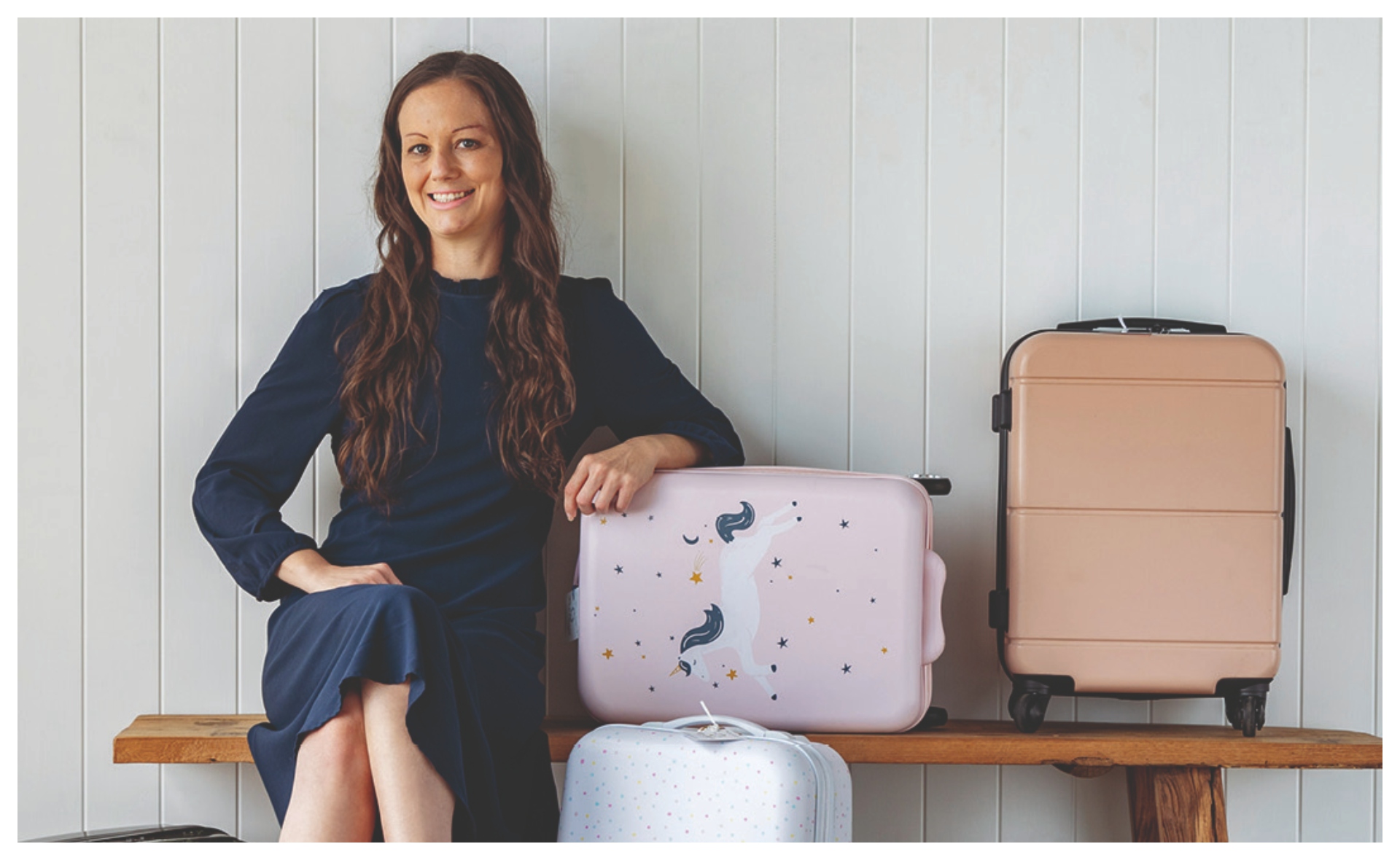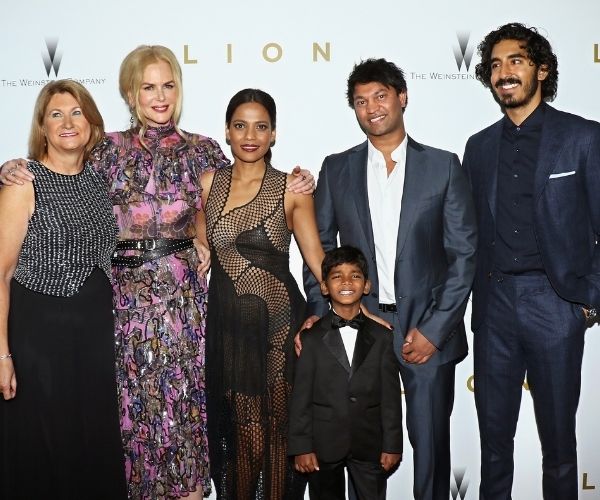The hot, lazy days of 1967’s ‘summer of love’ were filled with endless possibilities for dreamy teenager Lily McDonald, who was deeply in love and happily immersed in the new pop-rock scene of swinging ’60s Brisbane.
Lily’s favourite memories of those heady summer days were of curling up in bed at the inner-city flat she shared with the handsome young guitarist she planned to marry, while he serenaded her to sleep with the love song he had penned for her.
Tragically, however, on a sultry February night, the summer of love came to a sudden, terrifying halt for the lovebirds when Lily – who was a month shy of her 17th birthday – was woken by two burly policemen and hauled off to jail.
Her “crime” was that she had fallen in love and was six weeks pregnant. The following morning, Lily was frogmarched before a magistrate, charged with being “exposed to moral danger” and remanded in custody to the notorious Magdalene home for wayward girls in Wooloowin. There, she spent a harrowing week locked in an empty dormitory while the authorities made half-hearted attempts to locate her mother, who had recently moved to Sydney with Lily’s stepfather and seven younger siblings.

Lily as a teen in the ’60s.
(Image: Supplied and used with permission)With her father in jail and her mother’s whereabouts unknown, Lily was made a ward of the state and ordered to serve a period of indefinite detention at the Holy Cross Retreat, where the Sisters of Mercy were committed to correcting the ways of erring young delinquents like herself.
While her stricken boyfriend, Steve Blenko, 20, headed to Sydney to obtain her mother’s permission for a special marriage licence that would secure Lily’s immediate release, the bewildered teenager disappeared behind the walls of the institution, and into the system.
When he returned to the home with the signed marriage papers – which Lily also signed – the Mother Superior refused to give them back, and threw him out, saying they were too young to marry.
Lily’s name was changed to Leanne and she was forced to work without pay in the Magdalene’s commercial laundry, unaware Steve was being turned away by the nuns, and their letters to one another were being confiscated.
On September 1, 1967, Lily, who had turned 17, finally went into labour and was admitted to Royal Brisbane and Women’s Hospital where she was shackled to a bed like the common criminal the authorities had deemed her to be.
“I gave birth on my side in a painful running position, with one leg tied to a stirrup and the other pulled behind me while a nurse pinned me down by my shoulder – face down into the mattress and unable to move,” recalls Lily, now 72 and a grandmother.
After an agonising 17-hour labour, Lily finally delivered a healthy baby boy who was whisked away before she had a chance to see him.
For days, Lily begged to see her son, unaware he was hidden in the hospital nursery, and that the paperwork had already been prepared for his adoption.
“I managed to get word to Steve that I’d had the baby, and he sneaked in to visit me,” says Lily, who named her son Shane Stefan McDonald after his father.
But when the social worker from Children’s Services heard about the forbidden visit, she threatened to extend Lily’s term of detention, saying her baby would go into foster care and she would spend the next five years trying to prove she was fit to have him back.
WATCH: Watch the incredible moment two brothers reunite with their adoptive family. Story continues after video.
“She said, by then my baby’s father would have moved on – and my son would grow up hating me for taking him from the only home he’d known.”
Distraught and drugged on the hospital’s “heartbreak ward”, the confused teenager was cruelly coerced into signing the adoption papers giving her precious son away.
“I was allowed to see him once before I left, and only through the nursery window,” she reveals from her home on Queensland’s Gold Coast. “He had beautiful fair hair and his dad’s olive skin.”
Eight days after giving birth, Lily was back at work and her baby was in the arms of a new mother.
Her hopes of being reunited with Steve and getting their baby back were dashed six weeks later, when she was finally released from the home and put on a plane to her mother in Sydney.

Tim on his christening day.
(Image: Supplied and used with permission)Today, more than five decades of heartache later, the teenager who grew up to be a political powerhouse has penned an explosive account of her harrowing ordeal as a “prisoner of the state” and the chilling truth behind the crimes both church and state tried to hide. Her book, Dirty Laundry, marks the 10th anniversary of the Senate Committee Report which preceded the official government apology to more than 150,000 unmarried Australian mums who were coerced into giving up their babies under the Commonwealth Government’s illegal forced adoption practices during the 1950s and ’60s.
“I didn’t know it back then, but I later discovered that what happened to me was completely illegal,” says Lily angrily. “In 1967 the legal age of consent in Queensland was 16, which means my arrest was illegal, my imprisonment unlawful and the forced adoption of my baby criminal. But as a prisoner of the state, I had no rights, and was spat out by the system numb, completely traumatised and forever mourning the life that might have been.”
Ironically, a year after her release, the still-grieving mother married another man who would never be able to give her the children she desperately wanted. Suffering depression, post-traumatic stress and feelings of worthlessness, Lily fled her unhappy relationship and returned to Brisbane to look for her lost love, only to find he had recently married.

Lily with her first husband and their daughter Amanda, in a photo taken in 1973.
(Image: Supplied and used with permission)The shattering news sparked a meaningless affair and when Lily’s estranged husband discovered she was pregnant he begged her to come back, promising he’d love her child as his own. But sadly, the birth of her daughter left her reliving her teenage nightmare. Lily suffered a breakdown and spent years in therapy trying to come to terms with her suffering.
Twenty years later, Lily was finally reunited with the only man she had ever loved. By then, Steve’s marriage was over and her own was in freefall.
“It was unfinished business,” she explains. “For years, my husband had told me my baby’s father had deserted me, but now I finally knew the truth, that the nuns had kept us apart and stopped us from marrying.”
While the pair never knew who had reported Lily to the police, they’re convinced it was someone she worked with, because a few days before her arrest, she’d been sacked from her job as a sewing machinist after someone told the boss she was pregnant.
Although the old spark between Steve and Lily was still there, the painful years since their separation proved too great and they ultimately parted as friends.
“Before I left, Steve gave me some old photos of me in happier times,” she says. “I was amazed he’d kept them all these years, but shaken when I realised how young I looked.”
She returned to Sydney with more unfinished business – ending her unhappy marriage and on a mission to find her son. At 50, with the encouragement of her second husband, Des, Lily enrolled in a five-year law course to help her make sense of the adoption process and pursue the authorities for ruining her life.
One of the units involved studying the dynamics of successful community and Lily contacted an organisation called Origins, which was supporting mothers who had given babies up for adoption. When she shared her own story, a support worker asked if she’d been advised of her rights at the time of the adoption, or offered financial assistance to keep her baby, or told she would suffer a lifetime of medical issues as a result.
“When I said no, she informed me the adoption was illegal,” Lily says.
WATCH: Nicole Kidman talks about adoption at the BAFTAs. Story continues after video.
The revelation sparked a crusade for answers – and she found them among her old hospital records and court files.
“I’d never understood why I was the oldest, and the only pregnant teenager at the home, or why I hadn’t been sent to the unmarried mother’s home at the back of the institution,” she says.
To her dismay, she discovered that wards of the state were released at 16, which meant she shouldn’t have been there at all.
“My arrest was illegal and my detention unlawful which explained why Steve had never been charged with carnal knowledge, the offence at the time for sex with a minor – which I wasn’t!”
More distressing, Lily learned there had been a ‘cooling off’ period after signing the adoption papers, giving her the right to change her mind.
“This explained why I’d been held for six weeks after my son’s birth, until the time had lapsed and I could do nothing about it,” she says. “Basically, he was stolen from me and sold for $50 – the adoption fee in 1967.”

Steve, Tim and Lily, pictured in 1999 when they were all reunited – Tim was 35 at the time.
(Image: Supplied and used with permission)While an earlier attempt to initiate contact with her son through official channels had been rejected by him, and a notice in the local paper on his 21st birthday had failed to elicit any response, Lily was determined to find him and tell him the truth.
In 1998, with only his date of birth and new first name (Tim), Lily began to trawl old school enrolment records and electoral roles, narrowing the search to a young man who she later discovered lived down the road from her mother’s new home in Brisbane.
“My heart was thumping as my husband drove me to the address I’d found. I knocked on the door and handed his wife a journal of old photographs that told our family’s story,” says Lily. “I thought, if he was my son, he should know who he was and where he came from, and if he wasn’t, I’d drop around and pick it up later.”
The following morning, the call for which Lily had waited a lifetime finally arrived.
“You can stop looking,” said the voice on the end of the line. “I think I am your son.”
Later that day, an overjoyed Lily was finally reunited with her son in an emotional meeting.
“It was marvellous to finally meet him,” she says. “All these years I’d been searching for my baby only to find he was a grown man of 41 with four children of his own.”

Tim as a child.
(Image: Supplied and used with permission)She immediately called Steve and in time he met their son too.
On Mother’s Day that year Lily received a card, containing old photographs of precious milestones she had missed.
“It broke my heart to look at them,” she says, studying a faded snapshot of him at six weeks old in his christening gown. “That picture was taken around the time I was kicked out of the home, so to see him smiling for someone else who was living my life and enjoying all the special moments that had been stolen from me was a terrible reminder of everything I had lost.”
In 2004, Lily set out on a quest for justice which began with a report to Queensland police about the decades-old theft of her baby, and a submission to the Forde Inquiry which was investigating the institutional abuse of Commonwealth wards of the state.
She also entered local politics, lobbying for a Parliamentary inquiry like the one she’d championed for Australia’s Stolen Generation, who were demanding a national apology from the Commonwealth government for the unlawful removal of thousands of Indigenous children from their families.
WATCH: The moment an adopted family met their child for the first time. Story continues after video.
Under her married name, Lily Arthur, she initiated a costly civil action against the Queensland government, which she claimed had breached its duty of care when she was a ward of the state.
“I was also planning to sue the Catholic Church but settled the case against the Sisters of Mercy for $20,000 and an apology that never came,” says Lily.
In 2004, Lily’s civil case reached the Queensland Supreme Court, where a state-appointed psychiatrist acidly determined that she suffered “persecutory ideas” and was obsessed about her baby being involved in some sort of illegal “baby racket”.
“His report made my blood boil, because what happened to me was very real and the state was responsible,” she fumes. Justice John Byrne disagreed. In his 12-page judgement, he determined there was insufficient evidence to support Lily’s claims that she had been threatened or coerced into consenting to her son’s adoption.
Despite the crushing defeat, the legal battle attracted widespread media attention and Lily – now the figurehead of Origins – was inundated with thousands of complaints from other women with similar horror stories.

Lily and Tim together.
(Image: Supplied and used with permission)“After witnessing the national apology to Australia’s Stolen Generation and writing submissions for the Parliamentary Inquiry into the ‘Forgotten Children’ (the young migrants who were abused in the country’s government-run institutions), Lily started lobbying for another inquiry into Australia’s other stolen children.
“But first we had to prove that the Commonwealth government had been responsible for overseeing the uniform adoption legislation in all states and knew what was going on,” she says.
“We made a lot of noise because we needed the Senate Inquiry so people would hear our stories and we would get a public apology for all the unmarried mothers who had suffered, as I did,” she explains. “And we had so much evidence, they couldn’t deny it.”
After being accused of having “persecutory ideas”, the Federal Inquiry found these things really had happened and were illegal – and the Commonwealth government was responsible.
In 2013, in a defining moment for Lily, the then Prime Minister Julia Gillard issued a national apology.

Dirty Laundry, published by Ocean Reeve Publishing.
(Image: Booktopia)The victory made headlines around the world, sparking a similar crusade in the UK, where more than 500,000 women are currently demanding apologies of their own.
Today, reflecting on her fight for recognition, Lily says that the central injustice she and Tim suffered hasn’t changed.
“My baby was stolen – and to this day, remains stolen – and the crimes committed against us are still breaches of common law. And since an apology can’t circumvent common law, there’s still been no justice.
“But,” she adds, “if just one person reads my book, at least they’ll know the truth and what happened to us will not be forgotten.”
Dirty Laundry, published by Ocean Reeve Publishing, is available on Amazon.
You can read this story and many others in the June issue of The Australian Women’s Weekly – on sale now


.png)

